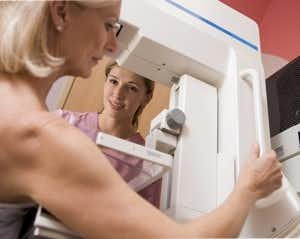
Mammograms to screen for breast cancer have long been controversial. When should women start having mammograms and how often should they get one for optimal detection of breast cancer? Will routine mammography lead to overdiagnosis? Those questions have been raised once again by a new study from Denmark.
The Danish Mammography Study:
The Danish research took advantage of a natural experiment. Some regions of the country started providing routine mammography a decade or more before the rest of the country.
The investigators compared breast cancer diagnoses and deaths between two regions, one with mammogram screening and one without. As a result, they concluded that mammography did not reduce the number of advanced breast tumors. That would have been the desired outcome.
Instead, mammography discovered some breast tumors that might not have needed treatment. Discriminating between aggressive tumors and indolent ones is difficult, even for experts.
Concerns:
Not everyone agrees with the conclusions of the study. Two organizations of radiologists that conduct mammograms have expressed concern that claims of overdiagnosis are exaggerated. The radiologists worry that these findings might discourage women from having routine mammograms.
Dr. Otis Brawley, chief medical officer of the American Cancer Society, agreed with the investigators that overdiagnosis might be a problem. However, he urged women to get annual mammograms between ages 45 and 54. After 55, women might safely switch to getting a mammogram every other year.
Breast Cancer Prevention:
Mammography is sometimes described as cancer prevention, but in fact, it is a means of detection. Doctors hope that regular mammograms will detect breast tumors early enough that treatment will be effective.
What can women do to prevent breast cancer? While there are no guarantees, they should pay attention to keeping their weight at a healthy level, getting adequate exercise and following a healthful diet. All these measures are associated with a lower risk of breast cancer.

